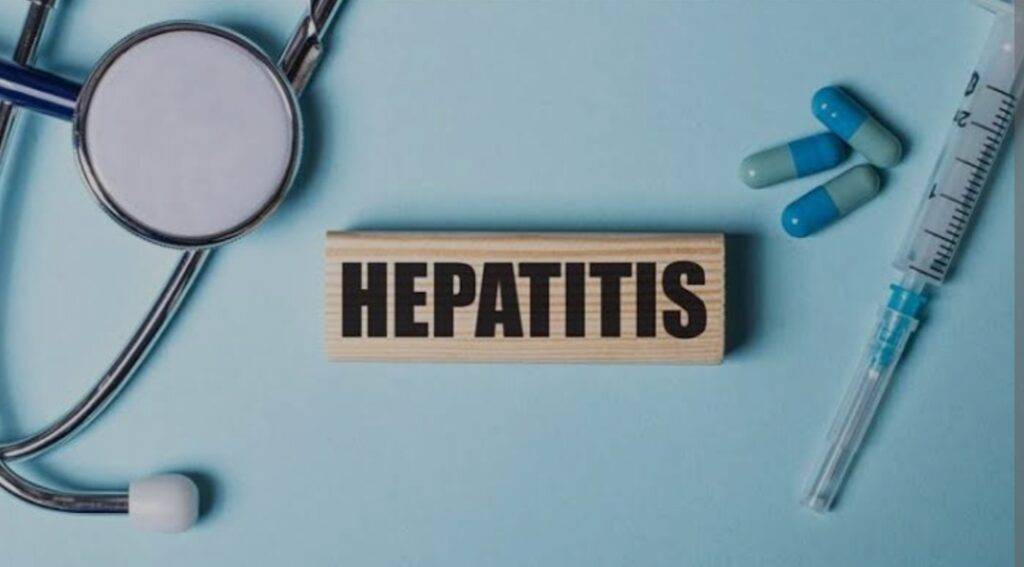Hepatitis B Prevention: Your Ultimate Defense
Defend your health with effective Hepatitis B prevention strategies. Learn how to safeguard against HBV. Prioritize Hepatitis B prevention today.
Introduction to Hepatitis B Prevention
Protecting yourself from Hepatitis B – The Hepatitis B virus causes a deadly liver illness. (HBV). It can be passed around by blood, sperm, and other body fluids. The virus can cause short-term and long-term sicknesses, leading to liver damage, cancer, and even death. Hepatitis B is preventable. There are several ways to prevent the virus. This essay covers Hepatitis B prevention tips. We’ll also discuss the virus’s symptoms and treatment choices.

Learn About Hepatitis B
Liver damage can be caused by the virus hepatitis B. The virus attacks liver cells, causing inflammation and damage. It can cause acute or chronic hepatitis, with chronic hepatitis being a long-term infection that lasts for more than six months. Chronic hepatitis B can damage the liver and bring cancer.
Definition
Hepatitis B is a viral hepatitis caused by the hepatitis B virus (HBV). It is a serious and life-threatening infection that affects the liver. HBV can cause inflammation of the liver, which can lead to cirrhosis (scarring of the liver), liver failure, and liver cancer.
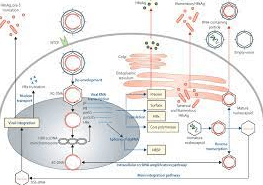
Types of HBV
It’s important to note that the severity of different types of Hepatitis B can vary, and they require different treatment approaches. If you suspect exposure to the virus or experience symptoms, seeking immediate medical attention is essential.
here are the different types of Hepatitis B:
Acute HBV
Cute Hepatitis B is a short-term infection that typically lasts several weeks to a few months. During this time, the body’s immune system fights off the virus, and most people will recover fully from the infection.
Chronic Hepatitis B is a long-term infection lasting over six months
Sometimes, the body cannot fight off the virus, which continues to multiply in the liver. Over time, this can cause liver damage, leading to liver cancer.
Fulminant HBV
is a rare and severe infection that can cause sudden liver failure. Hepatitis B is more common in people with weakened immune systems or infected with other types of hepatitis.
Asymptomatic HBV
Asymptomatic Hepatitis B infection occurs when the virus infects a person without exhibiting any symptoms. Even though there are no apparent symptoms, individuals with asymptomatic Hepatitis B can still transmit the virus to others. Therefore, individuals must undergo testing and take necessary precautions to prevent transmission.
Causes of HBV
It’s important to note that Hepatitis B is highly contagious, and even a handful of infected blood can lead to transmission. If you suspect you may have been exposed to the virus or are experiencing symptoms, it’s essential to seek medical attention immediately. Here are the common causes of Hepatitis B:
HBV is the leading cause.
(HBV). Blood-borne HBV can spread through semen and vaginal discharges. Sharing needles, sexual contact with an infected person, and mother-to-child transmission during childbirth are common transmission ways.
Unsterilized Medical Equipment
Exposure to unsterilized medical equipment is another common cause of Hepatitis B. This risk is particularly prevalent in countries with poor healthcare infrastructure, where medical equipment may not receive sufficient sterilization between patients. As a result, patients are put at risk of infection.
Vertical Transmission Hepatitis B
can also be transmitted from a pregnant woman to her baby during childbirth. This is known as vertical transmission and can occur if the mother is infected with the virus at delivery.
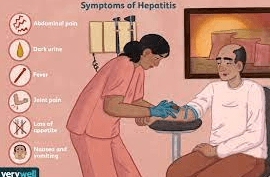
Essential Tips for Protect Yourself from HBV
People in healthcare settings, such as doctors, nurses, and laboratory technicians, are at an increased risk of exposure to Hepatitis B because of frequent contact with bodily fluids. Proper infection control practices and the use of personal protective equipment can help prevent occupational exposure.
Close Contact with an Infected Person
such as sharing personal items like razors, toothbrushes, or other personal hygiene items, can also lead to the transmission of Hepatitis B.
Symptoms of Hepatitis B
Before discussing Hepatitis B Prevention, we will dive into the symptoms.
It’s important to note that not everyone with Hepatitis B will experience symptoms, and some people may only experience mild symptoms that go away independently. However, in some cases, Hepatitis B can cause serious liver damage and life-threatening complications. If you suspect you may have been exposed to the virus or are experiencing symptoms, seeking medical attention immediately is essential.
Here are the common symptoms of Hepatitis B:
Fatigue
Fatigue, or being exhausted, is a common symptom of Hepatitis B. This can be because of the body’s immune system fighting the virus.
Loss of Appetite
People with Hepatitis B may experience a loss of appetite and may feel nauseous or vomit after eating. This can also lead to weight loss.
Jaundice
Jaundice is a yellowing of the skin and eyes that can occur in people with Hepatitis B. The buildup of bilirubin, a liver-produced substance, causes this.
Abdominal Pain
Abdominal pain, particularly in the upper right quadrant of the abdomen, is a common symptom of hepatitis B. This can be caused by inflammation of the liver or gallbladder.
Joint Pain
Some people with Hepatitis B may experience joint pain or muscle aches, making it difficult to move or perform daily activities.
Dark Urine
is a common symptom of Hepatitis B and can occur because of the buildup of bilirubin in the bloodstream.
Clay-Colored Stools
that are pale or clay-coloured can also occur in people with Hepatitis B because of a lack of bilirubin in the stool.
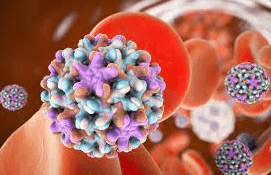
Diagnosis of Hepatitis B
If you suspect you may have been exposed to Hepatitis B or are experiencing symptoms, seeking medical attention immediately for diagnosis and treatment is essential. Early detection and treatment can help prevent serious complications and improve outcomes.
Here’s how Hepatitis B is diagnosed:
Medical History and Physical Exam
Your doctor will ask about your medical history and any symptoms you may be experiencing. They will also perform a physical exam to check for any signs of liver damage,
such as jaundice or an enlarged liver.
Blood Tests
Are the most common way to diagnose Hepatitis B. These tests can detect the presence of the virus in the bloodstream and measure liver function. Blood tests may include:
HBsAg
This test detects the presence of the Hepatitis B surface antigen in the bloodstream, an indicator of an active infection.
Anti-HBc
This test detects antibodies to the Hepatitis B core antigen and can indicate a previous or ongoing infection.
Liver Function Tests (LFTs)
These tests measure levels of liver enzymes, which can be elevated in people with hepatitis B.
Imaging Tests Sometimes
your doctor may recommend imaging tests, such as an ultrasound, CT scan, or MRI, to look for signs of liver damage or other complications.
Liver Biopsy
Your doctor may recommend a liver biopsy if imaging or blood tests suggest liver damage. This involves taking a small sample of liver tissue for analysis to assess the extent of liver damage and to rule out other liver diseases.

Hepatitis B Prevention Tips
Hepatitis B is a serious viral infection that can cause liver damage and other health problems. Fortunately, there are several steps you can take to protect yourself from the virus.
Here are tips for Hepatitis B Prevention:
Vaccination
The most effective way to prevent Hepatitis B is through vaccination. The vaccine is safe and effective and can protect you from the virus for life. The vaccine is recommended for all infants, children, and adults at risk of the virus. Talk to your doctor about getting vaccinated.
Practice safe sex
Hepatitis B can be spread through sexual contact, so it’s essential to practice safe sex. Use condoms during sexual activity to reduce your risk of infection. Avoid having multiple sexual partners, as this can increase your risk of exposure.
Don’t share needles.
Hepatitis B can be spread by sharing needles or other injection equipment. Don’t share needles or other equipment with others if you use drugs. Use only sterile needles and equipment that haven’t been used before.
Use caution with body art Hepatitis B
can be spread through unsterilized equipment used for tattoos, piercings, and other body art. Ensure that any facility you visit for body art uses sterile equipment and follows proper sanitation procedures.
Take precautions when travelling.
Hepatitis B is more common in some parts of the world than in others. If you’re travelling to a country where Hepatitis B is prevalent, avoid exposure. This may include getting vaccinated before you go, avoiding unsterilized medical equipment, and using caution with food and water.
Get tested If you think you have been exposed to Hepatitis B.
get tested immediately. Early diagnosis and treatment can help prevent serious liver damage. Talk to your doctor about getting tested.
Take care of your liver.
Besides taking steps to prevent Hepatitis B infection, taking care of your liver is essential. A healthy liver can better fight off infections, including hepatitis B. You can take care of your liver by eating a healthy diet, exercising regularly, avoiding alcohol and tobacco, and getting regular check-ups with your doctor. These prevention tips can lower your risk of Hepatitis B infection and keep your liver healthy.
In the next section, we’ll discuss treatment options for Hepatitis B.
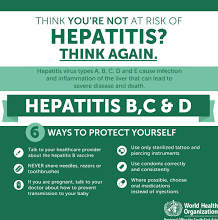
Protect yourself from Hepatitis B Treatment
If you have been diagnosed with Hepatitis B, there are several treatment options available that can help manage your symptoms and prevent liver damage. The type of treatment you receive will depend on your condition’s severity and overall health.
Antiviral medications
are often the first line of treatment for Hepatitis B. These medications can help suppress the virus and prevent liver damage. Several antiviral medications are available, including Entecavir, Tenofovir, and Lamivudine. Your doctor will determine the best medication based on your needs and medical history. It’s important to note that antiviral medications do not cure Hepatitis B, but they can help manage the virus and prevent liver damage. It’s also essential to take your medication as prescribed and follow up with your doctor regularly to ensure it works as intended.
Interferon injections
are another treatment option for Hepatitis B. Interferons are proteins that your body naturally produces to fight infections. Interferon injections can help boost your immune system and fight off the virus. This type of treatment is usually only recommended for people with chronic Hepatitis B who have not responded to other treatments. It’s important to note that interferon injections can have side effects, including flu-like symptoms, depression, and fatigue. Before starting this treatment, your doctor will discuss the risks and benefits of interferon injections.
Liver transplant
In rare cases, a liver transplant may be necessary if Hepatitis B. During a liver transplant, a severely damaged liver, damaged liver is replaced with a healthy liver from a donor. It’s important to note that a liver transplant is a major surgery with significant risks. Your doctor will discuss the risks and benefits of a liver transplant and determine if this is the best option for you. Following your doctor’s instructions and taking your medication as prescribed is important to ensure the best possible outcome. Besides medical treatment,
There are several lifestyle changes you can make to help manage Hepatitis B Prevention.
There are a lot of changes in your lifestyle you can make for Hepatitis B Prevention as follows:
- Avoid alcohol and tobacco.
Alcohol and tobacco can worsen liver damage and make Hepatitis B symptoms worse. It’s essential to avoid these substances to protect your liver.
- Eat a healthy diet.
A healthy diet can help support your liver and boost your immune system. Focus on foods rich in nutrients and avoid processed and high-fat foods.
- Get plenty of rest.
Rest is essential for your overall health, especially when your body is fighting an infection.
Try to get at least 8 hours of sleep each night and take breaks when necessary.
- Exercise regularly
Regular exercise can help boost your immune system and improve your overall health. Talk to your doctor about what types of exercise are safe for you. In conclusion, Hepatitis B can be a serious and life-threatening infection, but there are several steps you can take to protect yourself from the virus. If you do become infected, there are treatment options available that can help manage your symptoms and prevent liver damage.
Following your doctor’s instructions and making lifestyle changes, you can live a healthy and fulfilling life with HBV.
Conclusion about Hepatitis B Prevention
Hepatitis B has the potential to cause liver damage and life-threatening complications. However, taking preventive measures can significantly reduce the risk of infection.
To minimize the risk, ensure you receive the vaccination, practice safe sex, refrain from sharing personal hygiene items, and exercise caution when getting tattoos or piercings. Hepatitis B patients have multiple treatment options available to manage symptoms and prevent liver damage.
Follow your doctor’s guidance and adopt healthy lifestyle changes, such as maintaining a nutritious diet, getting sufficient sleep, and engaging in regular exercise. With proper management, Hepatitis B can be controlled, allowing for a fulfilling life.
Always prioritize the Hepatitis B Prevention to safeguard your liver and overall health. Consult your doctor for advice on preventing and treating the virus.

Adel Galal is a health and wellness writer with over 30 years of experience studying and writing about health, fitness, nutrition, and healthy living. He is the founder of NextFitLife.com, where he shares practical, evidence-based guidance to support long-term health at any age. Adel’s mission is simple:
to help people make smarter health choices that fit real life, at any age.

